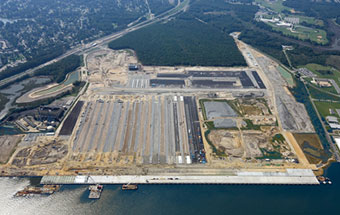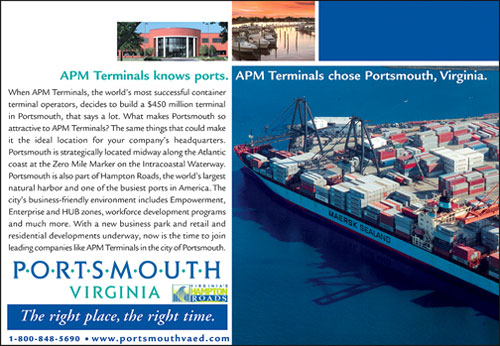
NOVEMBER 2006
More Manufacturers Using FTZ Ports (cover)
Incheon Free Economic Zone
Northeast Asia's New Destination for Global Business
Mississippi Coast Foreign Trade Zone and Water Ports …
Harrison County Development Commission
Aegean Free Zone: Turkey's Foremost Modern Industrial Park
ESBAS
Make a Stragic Move to Coega
Coega - Make the Right Move
North Carolina: The State of Minds
CenterPoint Intermodal Centers: Connecting You to the Global Supply Chain
The Midwest Empire's Inland Ports
Ohio River Corridor
Portsmouth's Maritime History Is Shaping its Future
Bring the World to Your Dock Doors in Indianapolis
Distribution Centers Encourage U.S. Investment and North American Hubs
Rockefeller Group FTZ
The Togo Free Zone
Opportunities Abound in Togo
Request Information

SPECIAL ADVERTISING SECTION
PORTS AND FREE TRADE ZONES
PORTS AND FREE TRADE ZONES
Portsmouth's Maritime History Is Shaping its Future

